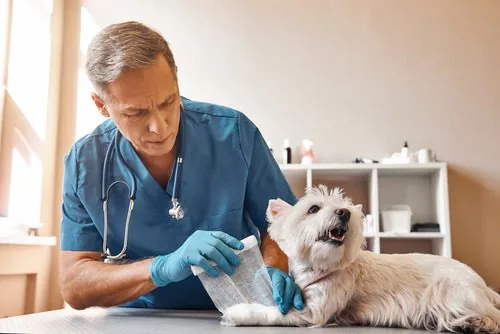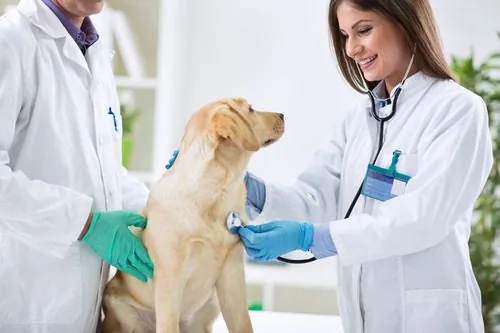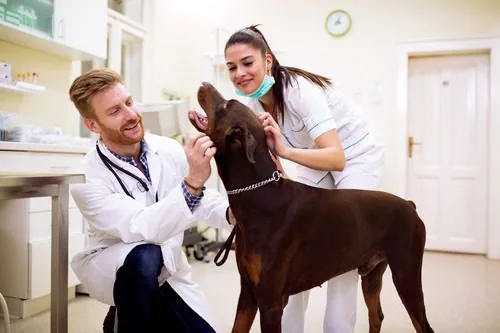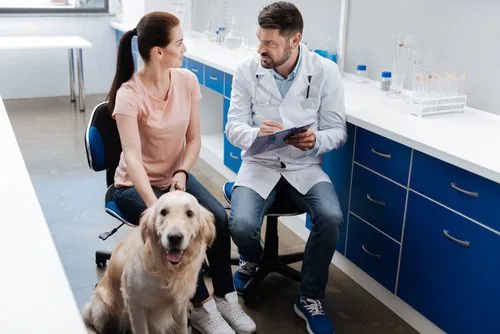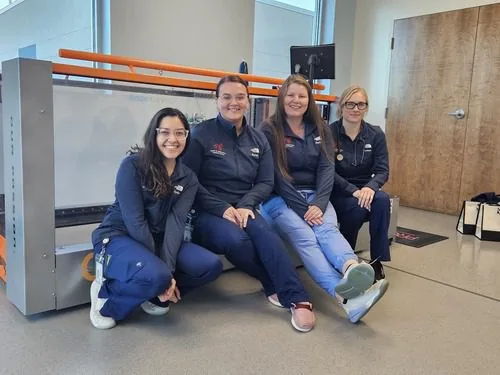Cat Heart Failure: What Cat Owners Need to Know
Many pet owners may be surprised to discover that animals can develop many of the same medical conditions and complications that us humans can. Unfortunately, this means that cats can suffer from things like heart disease and heart failure.
Congestive heart failure can occur in cats when the heart does not pump blood as effectively as it should. This leads to a buildup of fluids in the body in places where fluid should not be. Unfortunately, this can cause multiple problems for our feline friends when this occurs – and can be fatal in some cases.
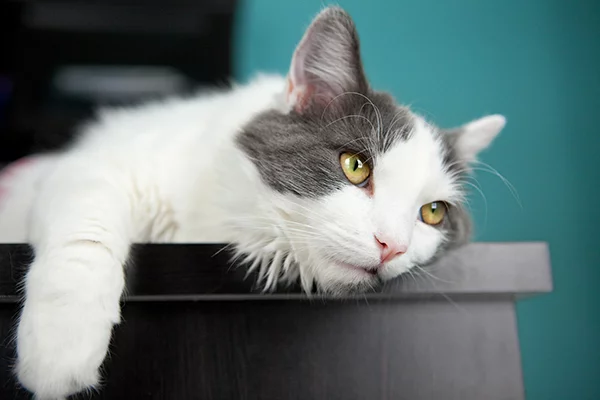
In this article, we will be explaining everything that cat owners need to know about heart failure in cats. This includes describing the signs of heart disease and the symptoms of heart failure. We will also be explaining how you can prevent things like heart disease and heart failure in cats, and describing how heart failure is treated by a vet. Let’s get into it.
Signs Of Heart Disease In Cats
There are many different signs of heart disease in cats, and many of them could potentially lead to heart failure when left untreated. As a result, many cats have a history of a heart problem before their heart fails them.
Therefore, it can be beneficial to know the signs and symptoms of heart problems in cats in addition to the symptoms of heart failure. Here are some of the most common signs of heart disease in cats.
- Lethargy
- Fast heart rate
- Fast breathing rate (even while at rest)
- Difficulties with walking and standing
- Coughing
- Having difficulty breathing
It is always recommended that you take your cat to the vet if they are showing any signs or symptoms of heart problems or heart disease. As a result, you should take your cat to the vet as soon as possible if they are exhibiting any of the above symptoms.
Symptoms Of Heart Failure In Cats
Congestive heart failure in cats occurs when the heart is not pumping blood as effectively as it should be. This leads to a buildup of fluids in places that should not have fluid. In cats this tends to be in the chest and abdomen.
Unfortunately, this can lead to cats developing some incredibly uncomfortable symptoms, and it can also be life threatening if left untreated. As a result, you should definitely take your cat to the emergency vet immediately if they are exhibiting any of the following signs of heart failure or if you believe that they have a heart problem.
Coughing
Coughing occurs as a result of the buildup of fluid in the chest around the lungs. This fluid build up leads to the lungs becoming irritated, which causes the coughing. Although a lot of coughing is common with congestive heart failure, coughing can sometimes be mild in cats with this condition.
Lethargy
Congestive heart failure is definitely a health condition that is uncomfortable and leaves those affected feeling ill. Unfortunately, this includes cats with this condition. As a result it is common for cats with heart failure to be lethargic, appear weak, and not play or be as energetic as they used to be.
In addition to this, you may notice labored breathing after walking or playing. This can also occur while they are laying down. If you notice labored breathing in your cat after events that shouldn’t be very taxing for them or when they are resting then you should immediately take them to the emergency vet.
Bloating
Fluid build up as a result of congestive heart failure can also cause a buildup of fluid in the abdomen. This can make their belly appear to be distended in a strange way.
Reduced Appetite
It is very common for animals to have a reduced appetite when they do not feel well. As a result, cats experiencing heart failure will usually not eat nearly as much as they would normally.
Vomiting
It is also fairly common for cats with congestive heart failure to have a difficult time with keeping food and water down. As a result, cats with this condition may vomit regularly.
Weight Loss
A reduced appetite over an extended period of time usually leads to weight loss in sick cats, and this is especially true when it is paired with other symptoms like vomiting. As a result, weight loss is common in cats with congestive heart failure, and it can leave cats with undiagnosed heart failure being quite thin.
Loss Of Consciousness
A loss of consciousness should always be considered as a medical emergency in cats. It is also a sign of congestive heart failure that has been left undiagnosed and untreated for an extended amount of time.
If your cat has a loss of consciousness then you should take them to the emergency vet immediately.
Preventing Heart Disease And Heart Failure In Cats
Although heart disease and heart failure in cats cannot always be prevented, there are some things that cat owners can do to prevent their cat from developing certain types of heart disease. Mainly, this includes having your cat live a healthy lifestyle.
As a result, possibly the best ways to prevent heart disease and heart failure in cats is to feed them a healthy and balanced diet and have them do a healthy amount of exercise. This will keep your cat at a healthy weight and provide their heart with enough exercise to remain healthy.
In addition to this, it can also be beneficial to take your cat to their routine wellness visits. This way vets can catch things like heart problems before they escalate into heart failure.
Treating Heart Failure In Cats
There are several things that a vet will do when a cat has been diagnosed with heart failure. The first thing that they will do is remove any buildup of fluid from the cat’s abdomen and chest. This will make the cat much more comfortable and make it easier for them to breathe.
In addition to this, the vet will likely provide you with specific medication to manage your cat’s heart problem along with pain medication to make your cat feel a bit better. In some cases a change in your cat’s diet may be necessary as well.
At VHA, we strive to make your pets’ lives as happy and as healthy as possible. If you ever have any concerns about your cat’s health, do not hesitate to give us a call at (863) 324-3340.
Recent Posts
Working at a 24/7 Emergency Veterinary Practice
Working at a 24/7 Emergency Veterinary Practice Working at a 24/7 emergency veterinary practice is a unique…
Do Veterinarians Have a Good Work-Life Balance?
Do Veterinarians Have a Good Work-Life Balance? When it comes to the dedicated professionals who care for…
6 Reasons to Work in a Specialty Referral Veterinary Practice
6 Reasons to Work in a Specialty Referral Veterinary Practice Working in the veterinary field is incredibly…
Is Being an Oncology Veterinarian a Rewarding Career?
Is Being an Oncology Veterinarian a Rewarding Career? Choosing a career path in veterinary medicine opens the…
Canine Water Treadmill Therapy
Canine Water Treadmill Therapy Welcome to our informative guide on Canine Water Treadmill Therapy. This revolutionary rehabilitation…
About Veterinary Healthcare Associates
Veterinary Healthcare Associates in Winter Haven, FL, was established over 30 years ago as Maxwell Animal Clinic by Dr. John Maxwell. Maxwell Animal Clinic was a one-doctor general practice offering preventive care, dentistry, and standard surgical services to the community. As the years passed, Maxwell Animal Clinic evolved into a thriving 10-doctor general, specialty referral, and emergency veterinary practice.

